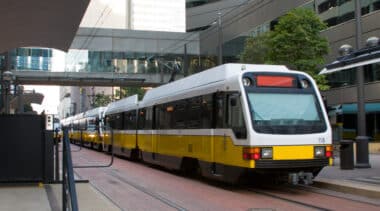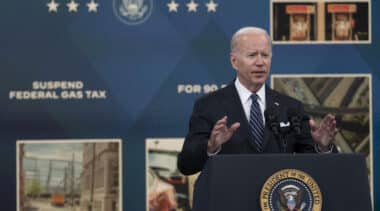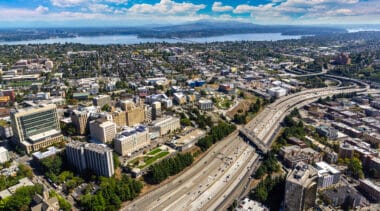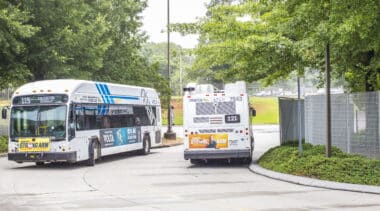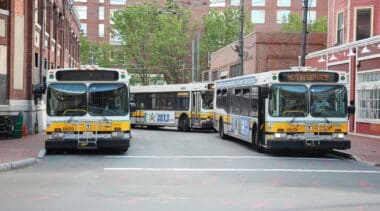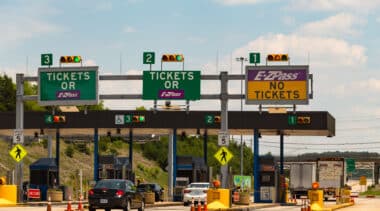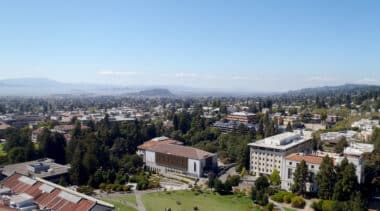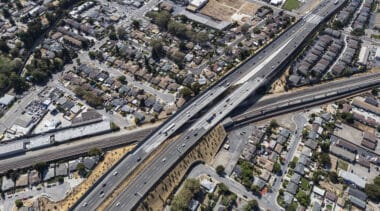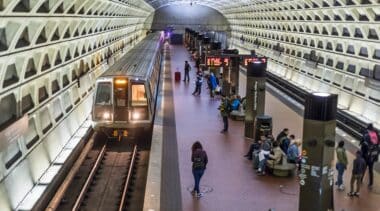Baruch Feigenbaum is senior managing director of transportation policy at Reason Foundation.
Feigenbaum has a diverse background researching and implementing transportation issues including revenue and finance, public-private partnerships, highways, transit, high-speed rail, ports, intelligent transportation systems, land use, and local policymaking. Prior to joining Reason, Feigenbaum handled transportation issues on Capitol Hill for Rep. Lynn Westmoreland.
Feigenbaum is a member of the Transportation Research Board Bus Transit Systems and Intelligent Transportation Systems Committees. He is vice president of programming for the Transportation and Research Forum Washington Chapter, a reviewer for the Journal of the American Planning Association (JAPA), and a contributor to Planetizen. He has appeared on NBC Nightly News and CNBC. His work has been featured in the Washington Post, The Wall Street Journal and numerous other publications.
Feigenbaum earned his master's degree in Transportation Planning with a focus in engineering from the Georgia Institute of Technology.
-
How to improve transit service for today’s workers and commuters
U.S. metro areas need a new transit approach that is tailored to serving the needs of today’s workers.
-
President Biden’s gas tax holiday is a bad idea
Biden's suggested fuel tax holiday is unlikely to reduce prices at the pump but could blow a hole in the federal Highway Trust Fund.
-
How Washington state can transition from the gas tax to road usage charges
This brief suggests a policy framework for developing a road usage charge program in Washington and an implementation order that builds on systems already in place on the state’s major highways.
-
Calls for Atlanta to cut bus services for transit-dependent riders in order to build rail for higher-income groups
MARTA is correct to focus its limited resources on providing quality bus services to people who rely on transit in their daily lives.
-
Bus rapid transit systems need to use transit signal priority
On average, bus travel times are reduced by 15% and key intersection delays are reduced by 50% when using transit signal priority.
-
Annual Privatization Report 2022 — Surface Transportation
In surface transportation policy, public-private partnership are far more common than privatized roads.
-
How to make overdue reforms to the California Environmental Quality Act
“CEQA is the law that swallowed California."
-
Steps metro governments can take to address housing affordability, skyrocketing prices
Local governments need to make changes to zoning laws, building-approval processes, and height limits that prevent more housing from hitting the market.
-
Testimony: Improving transit services in rural communities
Five recommendations for improving transit services to best serve rural populations, especially transit-dependent riders.
-
California drivers pay nation’s highest gas taxes for roads and bridges in poor condition
In addition to the 18.4 cents a gallon federal fuel tax, California’s drivers pay 51.1 cents per gallon in state gas taxes, plus state and local sales taxes.
-
Another congressional hearing, but few improvements at WMATA
The Washington Metropolitan Area Transit Authority's board is fundamentally flawed.
-
Arizona’s kids need expanded transportation options to get to the schools of their choice
Some of Arizona’s highest-quality schools are unable to offer student transportation thanks to outdated state laws.
-
Pittsburgh bridge collapse highlights how governments put off infrastructure repairs and maintenance
Consistently deferring repairs and maintenance can lead to disaster.
-
RAISE transportation grants go to non-transportation projects in committee members’ congressional districts
Of the 90 projects funded with Rebuilding American Infrastructure with Sustainability and Equity grants in 2021, only nine projects (10%) were national in nature.
-
Ranking how each state’s transportation funding system aligns with the users-pay/users-benefit principle
With direct users-pay funding sources, those who use the highways are the people paying for them.
-
Annual Highway Report: Ranking each state’s highway conditions and cost-effectiveness
The Annual Highway Report examines every state's pavement and bridge conditions, traffic fatalities, congestion delays, spending per mile, administrative costs, and more.
-
Youngkin should prioritize modernizing Virginia’s transportation funding sources
Virginia’s highway system is lagging behind neighboring Atlantic states.
-
Testimony: Without tolling, PennDOT does not have the ability to rebuild bridges
PennDOT should follow value-added tolling principles to rebuild the state's infrastructure.

